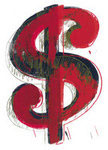 For many small business owners, their business is their largest asset and for many, one that is expected to help fund their retirement. We take a look at what your business is really worth and what sets a high value business apart.
For many small business owners, their business is their largest asset and for many, one that is expected to help fund their retirement. We take a look at what your business is really worth and what sets a high value business apart.
Irrespective of whether you are contemplating retirement or have many years ahead of you in business, every business owner is curious about just how much their business is worth.
For every business that sells for an attractive price, there are many that struggle to sell, let alone fetch an attractive price. With the average age of business owners increasing and fewer new entrants looking to buy existing businesses, the sale price of many businesses is likely to come under pressure.
When you come to sell a business the first question is – what are you selling? In most cases, this is fixtures and fittings, plant and equipment, stock on hand, and the goodwill of the business. Generally, a buyer won’t want to purchase your liabilities or your business structure, nor will they want to collect your outstanding debtors. Most business sales become a sale of business assets.
These assets are relatively easy to value with the exception of the goodwill. The value of plant and equipment, and trading stock, can generally be agreed. The tension is usually around the value of the goodwill. This is because goodwill is made up of many intangible assets – things that you can’t readily quantify. This can include the value of:
- the business name
- the customer list
- the income stream generated by the business
- your location and lease on premises
- your brand value
- franchise or distribution rights
- your operating systems
- advertising
- supply agreements
And the list goes on. We can all agree that there is value in these assets but the question is, how much? Goodwill is basically the value of the future free cash flow of the business. Based on how your business is structured, it is the value of the profits the business can generate in the future. This is what a buyer is prepared to pay for. If a buyer has a reasonable certainty of profits and free cash flow in the future, then this is worth something. By comparison, a start up business will have a higher level of risk and no certainty that profits can be generated. In fact, a new business may need to trade for a number of years at a loss before it can establish itself and generate profits. Goodwill is what you are prepared to pay to avoid the risk and ‘time to establish’ factor.
What influences business value and what will people pay for?
- A history of profits, profits, and more profits
- Returns on capital invested better than 30%
- Strong growth and growth prospects
- Brand name and value
- A business not dependent on the owners
- A strong customer list
- Monopoly income – exclusive territories
- A sustainable competitive advantage
- Good systems and procedures
It is possible to get a price that is widely different from the norm. Unique businesses, unique circumstances, and unique opportunities can always produce ‘an out of the box’ price. If you can build something special, then you may achieve a price beyond normal expectations. At the end of the day, the market will set the price. If you are planning to sell your business, be aware of who your buyers might be. There could be someone out there who is prepared to pay a big premium to own your business. And, even if you are not thinking about selling your business, the reality is that one day you will be. If you build your business with this in mind, then you should be looking to do those things that will grow your business value from year to year.
Where possible, the sale of your business should be mapped and planned three to five years in advance of the business sale. The majority of purchasers, when they assess the value of a business will look for established trends. This means seeing business performance reflected in the financial statements over a number of years. Most buyers and their advisers will want to review the financial performance of the business for at least the past three years. So, if you are making changes to enhance the business value then ideally these changes will show themselves over a sustained period. Where you can only show improved performance over one year or in the forward budgets, then there will always be a level scepticism that this is an aberration, or that the improvement has been artificially created in some way. Irrespective of the conclusion, a higher level of discount to the result will generally be applied.
If you want to find out more about how to prepare your business for sale, or would like to know how much your business is worth, talk to us today.

